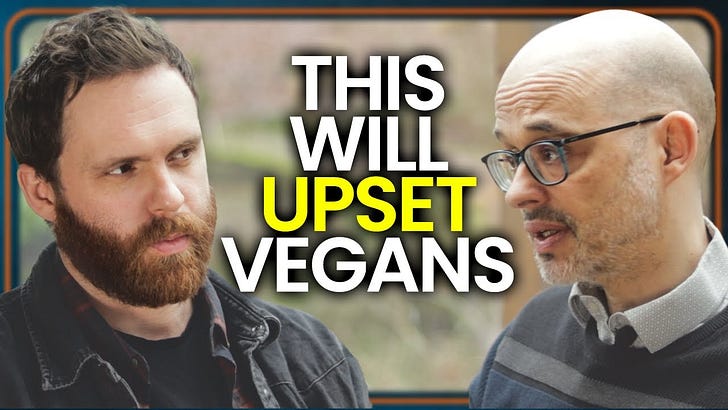Principles, pragmatism and infighting
An interview about objections to my views on growing the animal rights movement
For the past twenty year or so, in my work in the vegan/animal rights movement, I’ve been suggesting a pragmatic approach.
In brief, that means to care first and foremost about results rather than rigid rules, and to adapt our communication and strategies in terms of what fits the context and the audience.
Being pragmatic may lead one to e.g. talk about reduction of animal products instead of elimination, or about health instead of animals. It may entail collaborating with Big Food, even Big Meat. And it may mean lowering the price of entry to our movement, by putting progress above perfection.
All this is done not for money, not for fame, not to be contrarian, not because one is a sellout, but… to help animals.
Over the years I’ve heard from many people who find my writings and talks very useful, saying that my work has changed their advocacy (and their quality of life as an activist) for the better. And in general I believe that the vegan/animal rights movement has moved in a more pragmatic direction in the last five or ten years.
However, there has always been criticism of my views as well. I was happy to address some of the main objections on the channel of Youtuber and influencer David Ramms. David has said publicly that based on what he’d heard about me in his own vegan circles, he thought he knew enough to condemn me and my views. Until he read my book and found out he appreciated the content a lot.
All this just to say that David knows the objections other people make to my work really well. I am grateful to David for bringing them up in our conversation. You can watch it below (19 minutes), or you can read a transcript on David’s substack (which I recommend subscribing to).
In case you’re interested in what kind of response this sort of pragmatic stance garners, you can check out some of the hundreds of reactions below the video. You may notice that quite a few of them are not good responses to what I’m actually saying. Some comments may also be in bad faith or mean-spirited.
To come out as a pragmatist in this movement - so someone told me - is to constantly have your motivations questioned. Engaging with some of this criticism is endless, so instead of doing that, I'll try to set a good example by being charitable and acknowledging that even what seems bad-faith criticism comes from a place of deeply caring about animals.
Anyway, I'll let you form your own conclusions about the video. I welcome your comments below, critical or supportive (though uncharitable/mean-spirited comments will be deleted).






It was a pleasure interviewing you! I look forward to our follow up where we can delve into some of the most common criticisms and concerns that came up.
Hi Tobias (and David),
I appreciate this very much. Based on my experience since the late 80s, I have (slowly) come to realize that "veganism," like many rule-based means of identity, has always (and will always) attract fanatics. This is not to say that vegans are all fanatics, just that a certain type of fanatic will be drawn to veganism. Veganism, to them, is not a tool to help animals, but an identity - a public statement about the person. And a statement to be made loudly and constantly. And infidels like Tobias are to be attacked.
Given this, in countries like the US, vegans are more hated than just about any other group. Obviously, this hurts animals overall by making it easy to dismiss anything related to veganism.
Do you see any reason to think this will change? Despite what (some) vegans say, veganism is not exploding, and the number of animals consumed per capita is at or near an all-time high. Seeing this trend over nearly 40 years, I would have to think we can't do worse ....